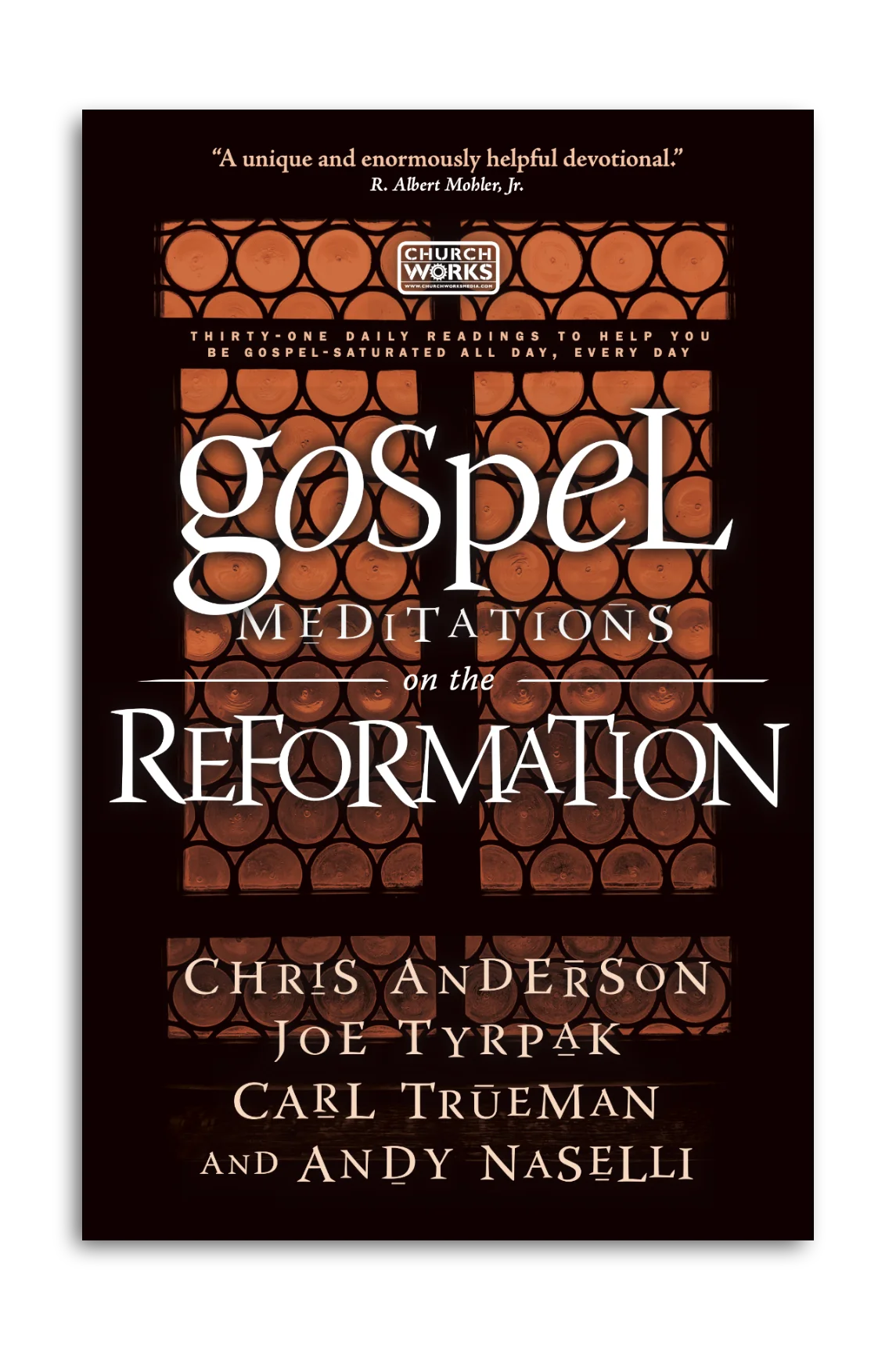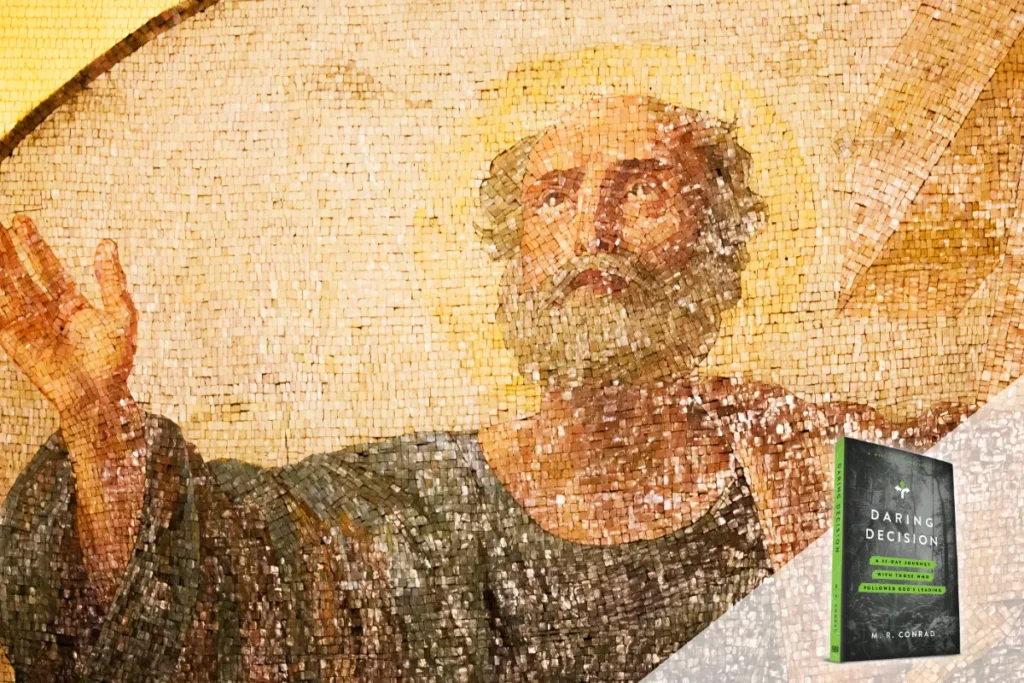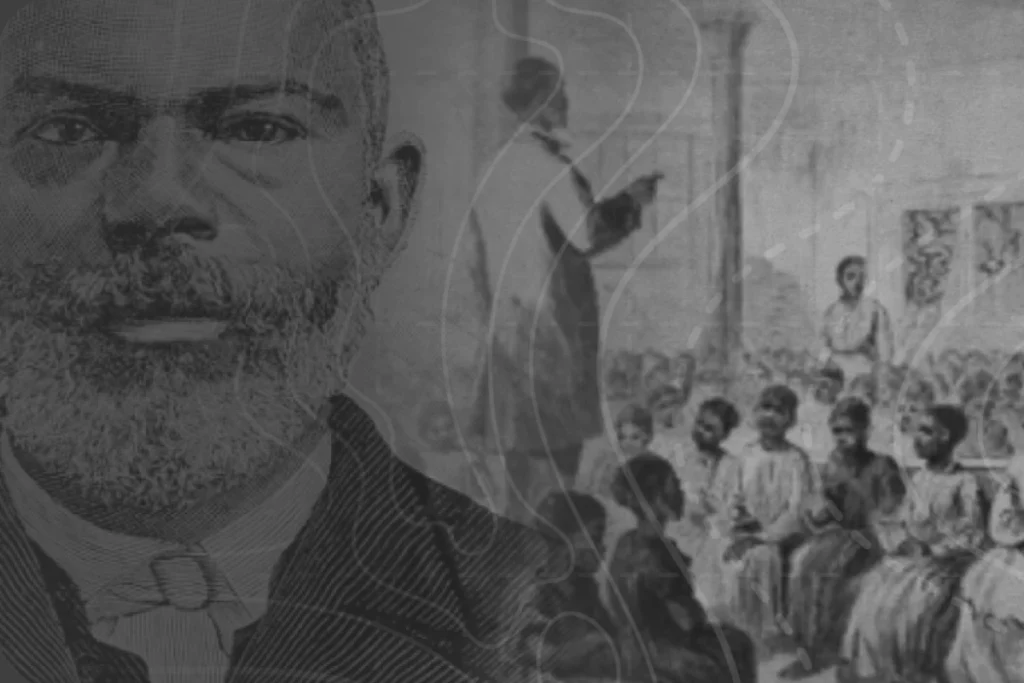
Blog
Sola Gratia: The Gift that Changes Everything

This post by Chris Anderson comes from Gospel Meditations on the Reformation (Day 27: “Justification and Sanctification”).
“Not a result of works…for good works.” (Ephesians 2:9–10)
If one question could capture the essential distinction between Catholicism and Protestantism, I’d argue that it would be this: What is the relationship between works and salvation? Catholicism would generally say that faith and works save the sinner. Protestantism would generally say that faith alone saves the sinner, who then works. That’s a significant difference, and it has eternal consequences.
This distinction was one of the key issues the Reformers addressed, highlighting a crucial characteristic that separates the biblical gospel from false gospels. Sola Gratia (grace alone) reminds us that salvation is entirely God’s work, with no human effort able to earn His favor or forgiveness.
The Biblical Basis of Sola Gratia
Ephesians 2 teaches that dead sinners are brought to life by God’s grace (alone). We call that aspect of our salvation regeneration (as discussed in Day 16 of this devotional). It goes on in verses 8 and 9 to describe how we are “saved” by grace and through faith in Christ. We generally call God’s pardoning of guilty but believing sinners justification. Verses 8 and 9 tell with unmistakable clarity that justification is “not a result of works.”
Verse 10 continues to discuss how those who have been saved are intended by God “for good works.” How’s that? Well, it describes the Christian life that invariably results from being saved by grace. Let’s boil it down as simply as possible: Good works are the result of salvation, not the cause of it. The prepositions in verses 9 and 10 matter: We are not saved “of works” but “for works.” Alexander Maclaren, a nineteenth-century English preacher, put it this way: “Religion says ‘Do this and live.’ Christianity says ‘Live and do this.’”
Justification vs. Sanctification: Understanding the Difference
Let’s dive a little deeper into the distinction between justification and sanctification. (I’m referring to progressive sanctification as Andy clarifies on Day 7.)
Justification is a judicial pronouncement by which God declares a sinner to be righteous on the basis of Christ’s imputed righteousness.
Sanctification is an ongoing process by which God enables the justified and regenerated saint to become righteous in daily life, enabled by the Spirit’s indwelling work.
Notice the key differences? Let’s consider several:
- Justification is an event that happens the moment a sinner trusts Christ.
- Sanctification is a process that happens throughout the Christian’s life.
- Justification is God’s pronouncing you righteous—in spite of you, because of Christ.
- Sanctification is God’s making you righteous in everyday life.
- Justification is by God’s grace, apart from your effort. It is monergistic—there is only one “worker,” and that is God.
- Sanctification requires your Spirit-enabled participation. It is synergistic—there are two “workers,” God and the Christian.
- Justification determines your standing with God—It’s the basis of heaven or hell.
- Sanctification determines your harmony with God—It’s the basis of daily joy.
Good works are the result of salvation, not the cause of it.
One of the major errors of Roman Catholicism—or of any works-based religion—is a confusion of justification and sanctification. Catholicism has you working in the hope that one day you might attain salvation. The motivation for good works is fear. Christianity, on the other hand, has you working because you have already been given salvation as a gift from God. The motivation for good works is gratitude and love.
The “core” of the Reformation is that salvation cannot be earned, or sold, or bought. Salvation is the free gift of God provided through the obedience and sacrifice of His Son, Jesus Christ. It is God’s free gift—a gift of His grace alone—sola gratia. You can’t work for it…but once you have it, you will gladly work from it.
Let the gospel motivate you to live a life of grateful service to your Savior.
Explore the whole book!
October 31, 2017, marked the 500th anniversary of Martin Luther’s posting of his Ninety-Five Theses and the beginning of the Protestant Reformation. In honor of this occasion, Church Works Media teamed with noted church historian Carl Trueman and theologian Andy Naselli to write 31 daily devotionals, taken from Scripture and illustrated with scenes from Reformation history. These meditations will feed your mind, warm your heart, and point your thoughts to Christ! Soli Deo Gloria!













